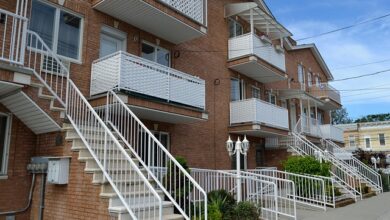Common Challenges Faced by Expats in the Netherlands

Living abroad can be an exhilarating experience, offering opportunities for personal growth, cultural enrichment, and professional development. However, for expatriates (expats) moving to a foreign country like the Netherlands, there are unique challenges that they must navigate. While the Netherlands is often praised for its high quality of life, progressive policies, and welcoming atmosphere, it also presents certain obstacles that newcomers may find surprising or difficult to adjust to. Below, we explore some of the most common challenges faced by expats living in this vibrant European nation.
1. Language Barrier
One of the first hurdles many expats encounter in the Netherlands is the language barrier. Although Dutch is the official language, English is widely spoken, especially in urban areas such as Amsterdam, Rotterdam, and The Hague. This makes communication easier for English-speaking expats initially. However, over time, expats might feel excluded from deeper cultural experiences if they don’t learn Dutch.
The Dutch language has a reputation for being challenging due to its complex grammar rules and pronunciation. For instance, mastering words with guttural sounds (like “g” and “ch”) can be daunting for non-native speakers. Additionally, while locals appreciate efforts to speak Dutch, their fluency in English sometimes discourages them from practicing with foreigners. As a result, integrating fully into Dutch society becomes harder without at least basic proficiency in the local language.
2. Cultural Differences
Cultural differences can create misunderstandings between expats and native Dutch people. The Dutch are known for their directness, which can come across as blunt or rude to those unaccustomed to it. For example, during business meetings or casual conversations, Dutch individuals tend to express their opinions openly and straightforwardly. While this approach fosters transparency, it may clash with cultures where diplomacy and politeness take precedence.
Another aspect of Dutch culture that expats may struggle with is the emphasis on efficiency and punctuality. Being late is considered disrespectful, and social gatherings often start exactly on time. Furthermore, the concept of “gezelligheid,” a cherished term referring to coziness and conviviality, plays a significant role in daily life. Expats who fail to understand or embrace this cultural value might miss out on meaningful connections with locals.
3. Housing Market Challenges
Finding suitable accommodation in the Netherlands can be one of the biggest headaches for expats. The housing market, particularly in major cities, is highly competitive and expensive. Rental prices have been rising steadily, making it difficult for newcomers to secure affordable homes. Moreover, the process of renting involves strict requirements, including proof of income, employment contracts, and references from previous landlords.
For those seeking to buy property, navigating the Dutch real estate system adds another layer of complexity. Mortgage loans typically require substantial down payments, and understanding legal documents written in Dutch can pose additional difficulties. These factors contribute to the stress experienced by expats trying to establish roots in the country.
4. Bureaucracy and Administrative Processes
Dealing with bureaucracy is another challenge that expats face when settling in the Netherlands. From registering for a citizen service number (BSN) to obtaining residency permits and opening bank accounts, the administrative procedures can seem overwhelming. Each step requires specific documentation, and delays are not uncommon.
Navigating healthcare systems is yet another hurdle. While the Dutch healthcare system is renowned for its quality, accessing services often involves dealing with insurance companies and filling out forms in Dutch. Expats unfamiliar with how the system works may find themselves confused about coverage options and costs.
5. Social Integration
Despite the openness of Dutch society, forming lasting friendships with locals can prove challenging for expats. Many Dutch people maintain tight-knit social circles, and breaking into these groups requires effort and patience. Expats often end up socializing primarily within their own expat communities, which limits exposure to authentic Dutch traditions and customs.
Additionally, the transient nature of expat life means that relationships formed abroad tend to be shorter-lived compared to those back home. This constant cycle of meeting new people and saying goodbye can lead to feelings of isolation or loneliness.
6. Weather and Lifestyle Adjustments
The Netherlands’ climate is another factor that takes some getting used to. Known for its unpredictable weather, the country experiences frequent rain showers throughout the year. Summers are mild, and winters can be cold and damp, though rarely extreme. For expats accustomed to sunnier climates, adjusting to the gray skies and limited daylight during winter months can affect mental well-being.
Lifestyle adjustments extend beyond the weather. Cycling, for instance, is a staple mode of transportation in the Netherlands. While cycling offers numerous benefits, learning to ride safely amidst busy bike lanes and sharing roads with experienced cyclists can be intimidating for beginners.
7. Work Environment and Career Adaptation
Expats working in the Netherlands may encounter differences in workplace culture compared to what they’re used to. Dutch businesses prioritize work-life balance, and employees generally enjoy generous vacation allowances and flexible hours. However, this relaxed attitude contrasts sharply with more hierarchical or results-driven corporate environments found elsewhere.
In addition, networking plays a crucial role in career advancement. Building professional relationships through informal channels—such as after-work drinks or industry events—is essential but may feel unnatural to expats unfamiliar with such practices.



